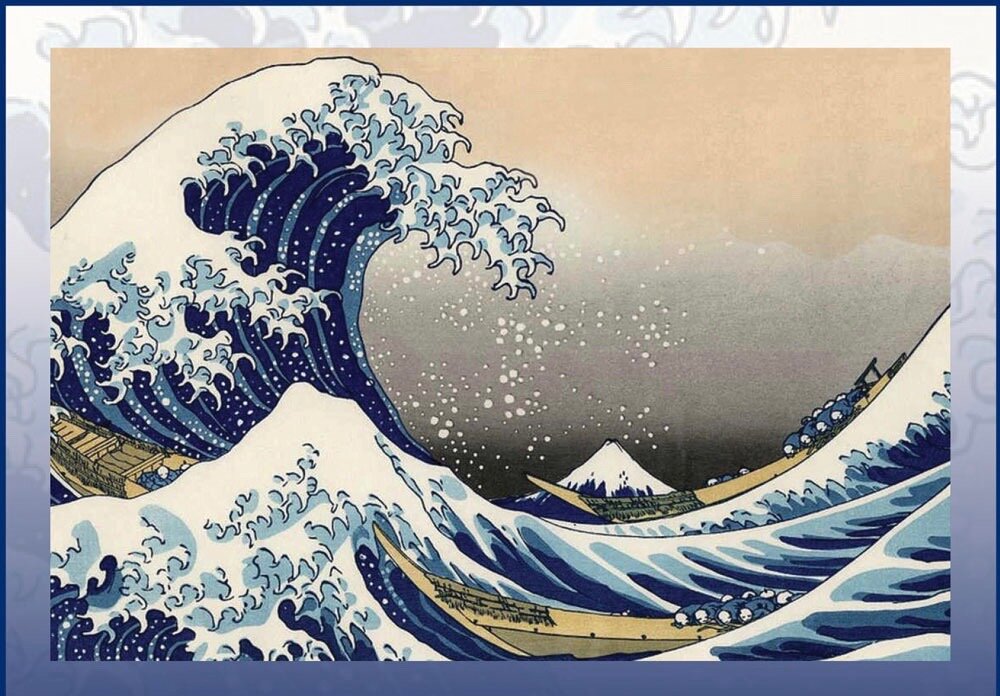As we move deeper into the weeds of the “consequences” of this election, we might also move deeper into the Buddha’s teachings and how the wisdom they impart applies now more than ever.
Late in the Buddha’s historical life, those he cared about suffered political reversals of a more or less catastrophic nature.
These two passages from Wikipedia outline the events that unfolded.
"The early texts also speak of how during the Buddha's old age, the kingdom of Magadha was usurped by a new king, Ajatashatru, who overthrew his father Bimbisara. According to the Samaññaphala Sutta, the new king spoke with different ascetic teachers and eventually took refuge in the Buddha.[238] However, Jain sources also claim his allegiance, and it is likely he supported various religious groups, not just the Buddha's sangha exclusively.[239]
And later
"At around the same time of Devadatta's schism, there was also war between Ajatashatru's Kingdom of Magadha, and Kosala, led by an elderly king Pasenadi.[247] Ajatashatru seems to have been victorious, a turn of events the Buddha is reported to have regretted.[248]”
So the Buddha’s own father was defeated and lost control of his kingdom. The poignancy of the second passage is that the victorious king who defeated the Buddha’s own father went on to make war with and defeat one of the Buddha’s most ardent supporters, king Pasenadi. King Pasenadi appears in a number of the Buddha’s teachings and built many Buddhist monasteries in gratitude to the Buddha and devotion to his teachings.
I am reflecting more and more these days on changes that will outlast my lifetime - global warming, the increasing volatility of the weather with storms, floods, droughts, and wildfires becoming more frequent and closer geographically. And even if some of the destructive forces of greenhouse gases could be reversed, the healing might not be visible in my lifetime.
And now political reversal.
That realization has caused me to reflect even more deeply on what the Buddha meant by the Four Noble Truths - there is suffering, there are causes for suffering, there is an end of suffering, the Noble Eightfold path is the way to the end of suffering.
One of the key causes for suffering is craving, wanting. Craving or wanting quickly lead to attachment. Think of the closed fist. Grasping. Holding on. Do you feel yourself holding on to a vision of the future that seems to be receding before you? Can you feel the tension in that holding on? The wanting of that holding on? The contraction?
The Buddha taught that nothing whatsoever is to be clung to as me or mine. Not my future. Not my way. Not my vision of how the world, the country, the forest, the trees should be. Not my body.
Impermanence is the other key teaching of the Buddha’s. As much as we think our new reality is this way, simply wait and see. In whatever way we imagine the future to be, the truth is ever other than that. And this truth is universal, applies to all of us.
So when we are suffering, we can remember the truth of impermance. Lincoln said, this too shall pass. That helped him endure the terrible suffering of the Civil War battles. There is suffering and there is the end of suffering.
The Buddha was also very clear that the end of suffering did not depend on our external circumstances. The end of suffering is an internal freedom that is available to everyone in this lifetime.
I want to return to a statement I made above, "And even if some of the destructive forces of greenhouse gases could be reversed, the healing might not be visible in my lifetime.” Let me add, that the changes and the healing has never stopped. If you cut yourself, the cut heals by itself. If the forest burns, regeneration begins immediately. The rains come, the rains go. And then they come again or they reappear somewhere else. Life goes on, persists, flourishes even in the darkest circumstances.
The hope we have had of justice for all beings, environmental responsibility, access to resources for everyone, a kinder, gentler attitude towards all beings may being suffering the “slings and arrows of outrageous fortune,” but the work that has been done to realize those goals is not wasted. Those new seeds have been planted, watered, nourished. They will not die easily, many of them will flourish. And they will not stay neatly on one side of a fence or the other.
The freedom from suffering we can achieve for ourselves and others will give us the energy and purity of purpose to continue working toward this future whether we will see it or not.
So can we let go of the wanting, of the striving, of the struggle? It doesn’t mean we need to let go of our wholesome efforts. Just our attachment to the results.
As Martin Luther King, Jr. said in his famous speech at the National Cathedral, in March of 1968:
We shall overcome because the arc of the moral universe is long but it bends toward justice.
–Dr. Martin Luther King Jr., “Remaining Awake Through a Great Revolution.”

